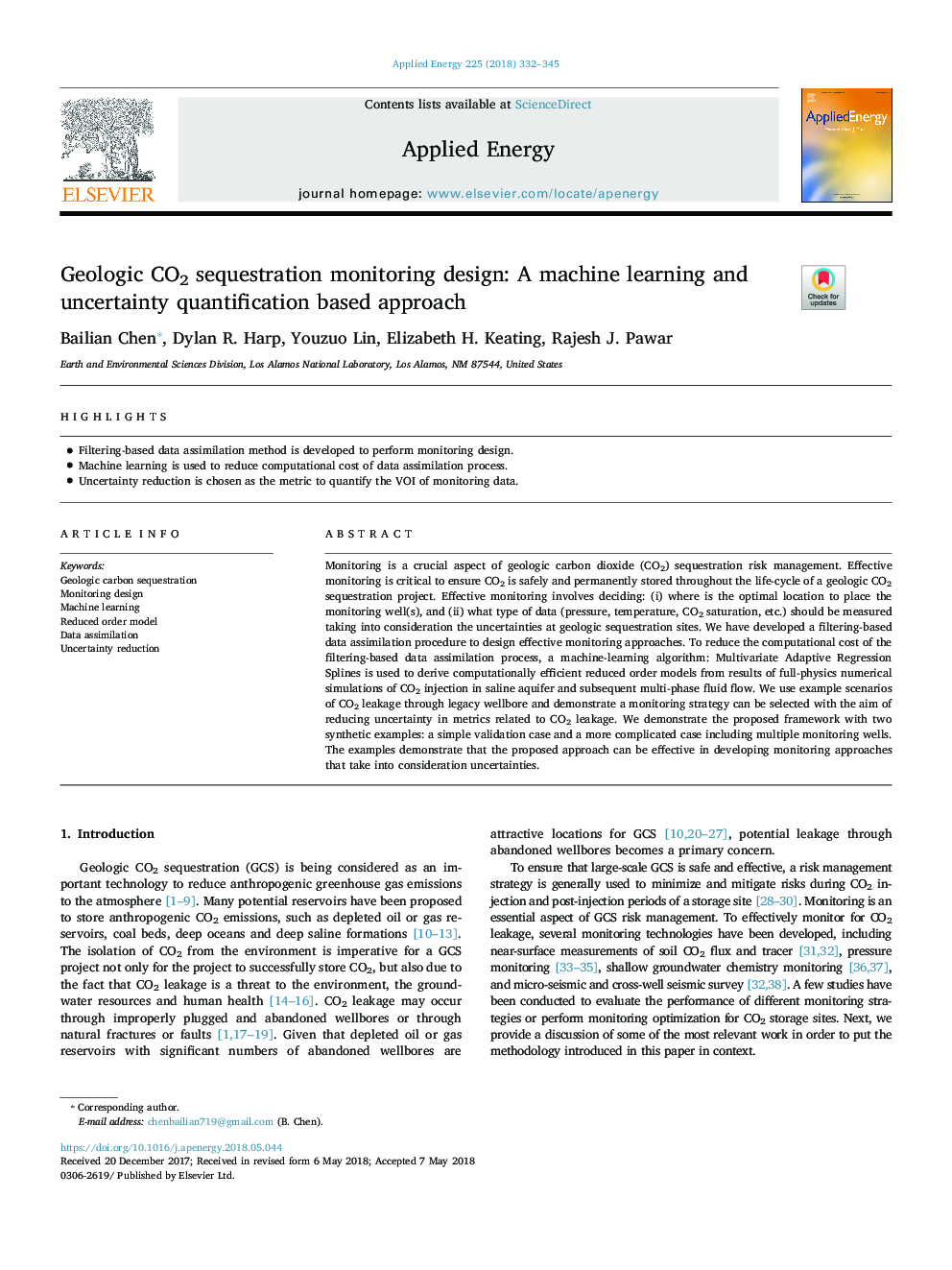| Article ID | Journal | Published Year | Pages | File Type |
|---|---|---|---|---|
| 6679916 | Applied Energy | 2018 | 14 Pages |
Abstract
Monitoring is a crucial aspect of geologic carbon dioxide (CO2) sequestration risk management. Effective monitoring is critical to ensure CO2 is safely and permanently stored throughout the life-cycle of a geologic CO2 sequestration project. Effective monitoring involves deciding: (i) where is the optimal location to place the monitoring well(s), and (ii) what type of data (pressure, temperature, CO2 saturation, etc.) should be measured taking into consideration the uncertainties at geologic sequestration sites. We have developed a filtering-based data assimilation procedure to design effective monitoring approaches. To reduce the computational cost of the filtering-based data assimilation process, a machine-learning algorithm: Multivariate Adaptive Regression Splines is used to derive computationally efficient reduced order models from results of full-physics numerical simulations of CO2 injection in saline aquifer and subsequent multi-phase fluid flow. We use example scenarios of CO2 leakage through legacy wellbore and demonstrate a monitoring strategy can be selected with the aim of reducing uncertainty in metrics related to CO2 leakage. We demonstrate the proposed framework with two synthetic examples: a simple validation case and a more complicated case including multiple monitoring wells. The examples demonstrate that the proposed approach can be effective in developing monitoring approaches that take into consideration uncertainties.
Keywords
Related Topics
Physical Sciences and Engineering
Energy
Energy Engineering and Power Technology
Authors
Bailian Chen, Dylan R. Harp, Youzuo Lin, Elizabeth H. Keating, Rajesh J. Pawar,
